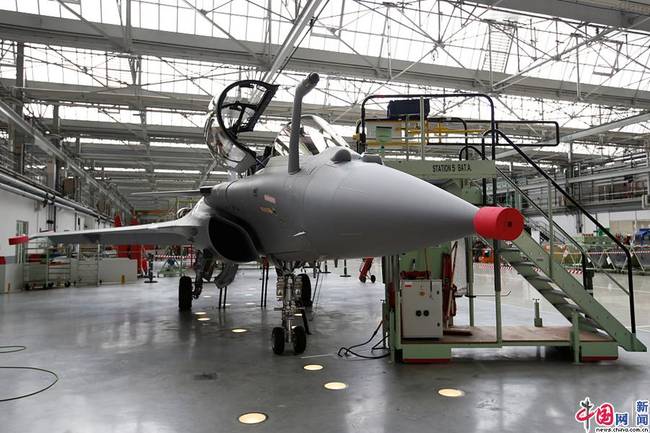
By Kong Gang
France delivered the first Rafale fighter jet to India on October 8. In 2016, India signed an agreement with France to purchase 36 Rafale fighter jets with a total value of $8.8 billion. Romania recently signed a $1.3 billion arms sales contract with France. According to the latest Global Defense Trade Report released by Jane's Defense Weekly in 2019, France will surpass Russia in 2020 and become the world's second-largest arms exporter. France has sold various weapons to the rest of the world in recent years and its military sales performance has continued to improve.
France's stable, solid and high-level defense industry system is the main reason for its outstanding arms export performance. There is no shortage of military industry powers in Europe, but France is unique among them.
France advocates glory and independence, which is also deeply reflected in the defense industry. Since the beginning of President Charles de Gaulle in the 1960s, French leaders have always insisted on an independent defense industry foundation, that is, independent of American technology, and capable of developing and manufacturing all major weapons systems.
France has had a painful experience after all. In the 1950s, the US blocked the nuclear weapons technology against France and prevented it from becoming a nuclear power. This caused a serious blow to France's comprehensive national strength. Moreover, the “information technology acquisition review” mechanism pursued by the US is likely to lead to export restrictions and political control, making France more worried. Therefore, France is committed to becoming the only European military industry power that can independently develop and produce fighter jets, main battle tanks, nuclear submarines, missiles and nuclear warheads, aircraft carriers and surface warships.
It is because of France's unremitting persistence that the French arms can be technologically independent and self-contained. French arms are favored by many arms importing countries and have become a business card of France.
In addition to the glory of “uniqueness”, the excellent sales and broad market of French arms benefit from two important factors.
On the one hand, the French arms have advanced design concept, outstanding combat performance and high performance-cost ratio. French weapons are mostly versatile. Take the famous Mirage fighter jet as an example. It can perform all-round tasks such as air combat, ground attack and battlefield reconnaissance. The advanced design concept of the French military industry has cut the cost and price. The high performance-cost ratio of its military products has given them a strong comparative advantage in the highly competitive international arms market.
On the other hand, the French government's arms sales policy is proactive, flexible and stable. Its arms sales contracts with importing countries are less interfered by other factors. This is an important reason helping France's arms exports achieve good results. India, Egypt, Qatar and other countries are the main customers of French weapons. Under the strong marketing of the French government, the Rafale fighter jets have successfully been commissioned in these countries. While consolidating the traditional market, the French defense industry also shifts to the far-flung Asia-Pacific region and signed a submarine contract with Australia of over $30 billion, making a significant contribution to the French arms sales.
At the same time, EU member states have increasingly strengthened defense cooperation in the context of the Trump administration's “America first” policy and constant pressure on its European allies in the military field. As the two major countries of the EU, France and Germany are currently actively promoting close cooperation and coordination in terms of the arms sales policies of the two sides. According to the latest Aachen Treaty, the two countries have also made efforts in this regard to forge a common path of arms exports.
However, France and Germany still face many obstacles in coordinating arms exports: the strategic culture between the two countries is different. France regards military export success as a “glory”. Germany is also a major exporter but it has many restrictions on arms sale. The total export volume of the German economy is much larger than that of France and therefore it does not expect extra benefits out of the “cake” of arms sales. In contrast, France attaches greater emphasis on contributions made by arms sales to the export mix.
Germany stopped to sell arms to Saudi Arabia recently, and the French side complained that they cannot make money and it also affects the defense cooperation within the EU. From this point of view, there are indeed many obstacles for France and Germany to forge ahead a common path of arms exports. Moreover, while advocating its own glory, France may have to care more about the feelings of its European partners in the future.
(The author is from the PLA National University of Defense Technology)









